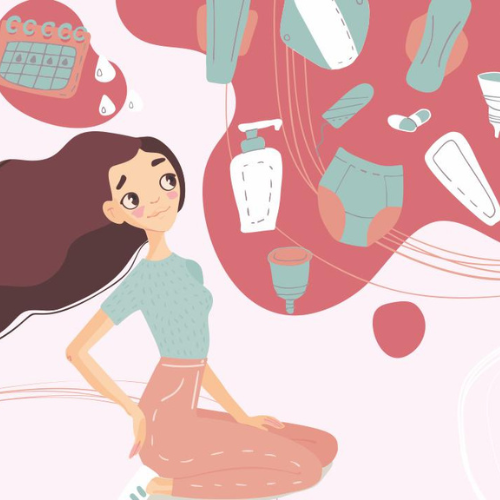Menstruation health management (MHM) has been an area of focus for a few years now as it directly impacts how girls and young women navigate their lives. In Kenya, advocacy for adequate and quality menstrual health management facilities and products triggered the development of MHM policies including the Menstrual Health Management Strategy 2019-2024. Despite the attention drawn to the need for adequate menstrual health management, not much progress has been made in actualization of the right to proper MHM facilities and products.
While menstruation is a natural occurrence, it is regarded with so much disdain and contempt. In most societies, even the most developed, conversations about menstruation are taboo. Menstruation is marred with stigma and shame and only spoken about behind closed doors. Girls are taught to hide and never speak of their period. Resultantly, there is a lot of ignorance about menstruation. Most fail to recognize that because of the unique biological make up in women’s and girls’ bodies, sometimes menstruation can ‘’arrive” unannounced, or one could have a leak and not realize it. Not every woman would be prepared to deal with such eventualities. It is only polite to step in and try to assist rather than shame and turn a woman or girls’ “oops” into a spectacle.

Earlier this week, Hon. Senator Gloria Orwoba, was thrown out of parliament for having a period-stained outfit. Before being thrown out she was subjected to ridicule and shame by her colleagues who termed her conduct as being shameful and a poor example to young girls. This only reiterates the narrative that menstruation is an undesirable bodily event. It further demonstrates that despite the milestones achieved, society still has a very long way to go in ensuring that girls and women have access to adequate menstrual health management facilities, information, and products.
An act that has now come to be termed as a campaign strategy, has brought to the forefront conversations about the provisions of menstrual management facilities, information and products for girls and women. MHM has always been regarded as a women’s issue and rather than a human rights issue. Many fail to acknowledge that proper MHM facilities and products directly contribute towards achievement of gender equality and economic growth.
Reports by World Bank indicate that an estimated 500 million women and girls lack access to menstrual products and adequate facilities for menstrual hygiene management. Analysis conducted by FSG on behalf of Bill and Melinda Gates indicates that 65% of women and girls in Kenya cannot afford MHM products. Despite the overwhelming number of girls in need, please to the government to reduce the cost of menstrual products have fallen on deaf ears.
Due to the high costs of menstrual products, girls and women are forced to make proxy menstrual products to manage their menstruation including toilet paper, pieces of blanket and mattresses, cloth, or other natural materials. Some girls and women are even forced to engage in transactional sex to afford sanitary products, which at times leads to, STIs infections including HIV, unplanned pregnancies and unsafe abortions. The substitution of the menstrual products makes girls and women susceptible to infection which could turn fatal.
The government in 2017 made provisions for free menstrual products for girls in schools to try and ensure that they go through menstruation with dignity. However, not many girls and women can enjoy the benefits of this initiative. Out-of-school girls and women are still left to their own devices.
Private institutions, individuals and NGOs have taken it upon themselves to step in the gap and try to improve the quality of lives of women and girls by provide dignity packs to women and girls around the country. They have also advocated for MHM information to be easily accessible to girls and women in a bid to reduce the stigma and shame that is associated with MHM.
